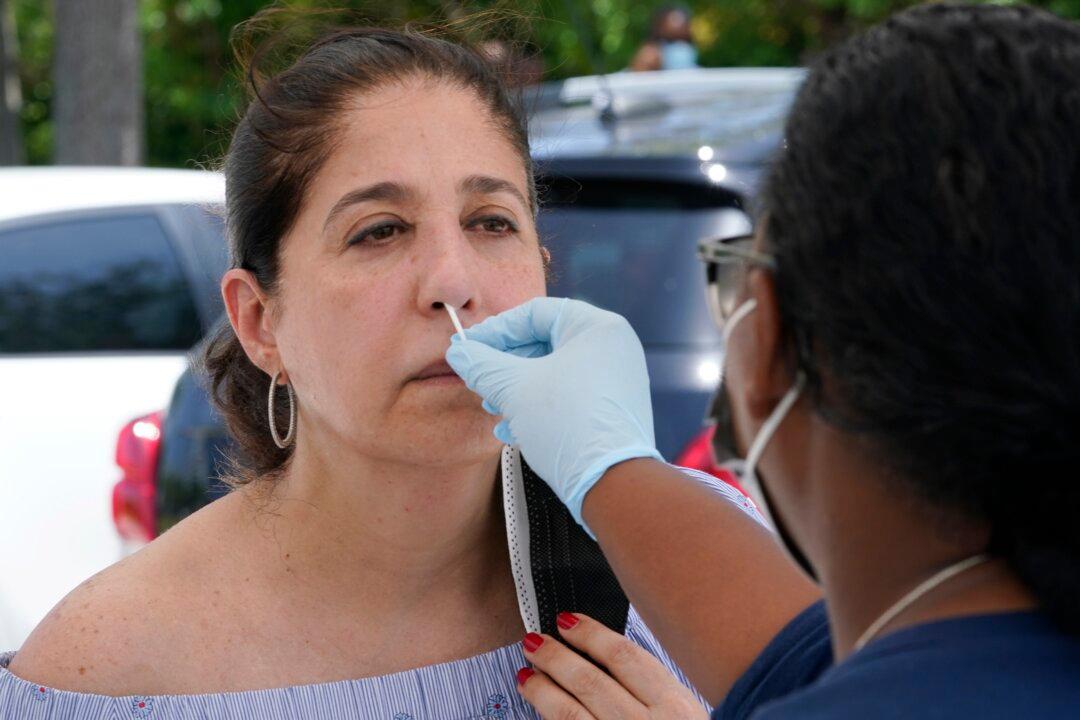Florida is seeing a record number of COVID-19 cases and hospitalizations amid a nationwide increase in COVID-19 metrics.
Some 10,217 confirmed or suspected COVID-19 patients were being cared for in hospitals in recent days, according to data submitted to the U.S. Department of Health and Human Services by facilities.





